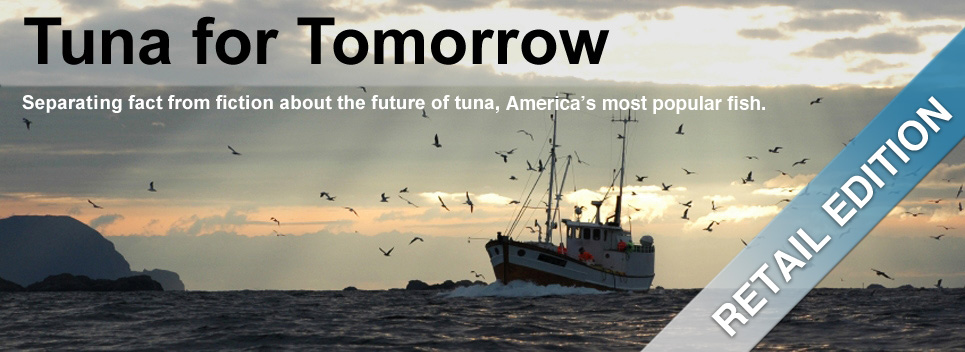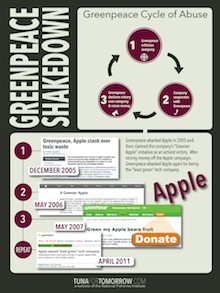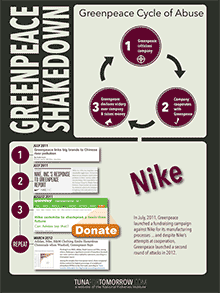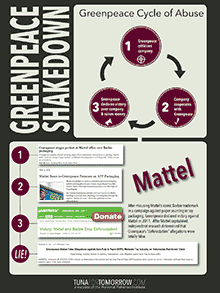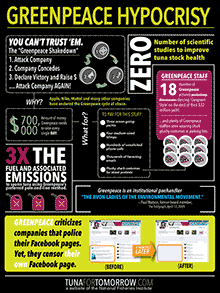If you go to the Greenpeace page announcing their latest assault on a company—this time it’s Wal-Mart and its seafood sourcing policy—the very first thing you’ll see is “DONATE” and “GIVE TO GREENPEACE” splashed across the top of the page. It’s what they’re about. The sun rises in the east, it sets in the west, and Greenpeace shakes down companies to juice fundraising. The targets change, but the tactics have remained the same for years.
With Greenpeace that means a particularly vicious cycle: Assault a company with spurious charges, secure concessions in exchange for a promise to halt the attack, fundraise off this “victory”, rinse, repeat. As too many companies have learned the hard way, Greenpeace has, in its own words, has “no permanent friends.” More fitting, perhaps, would be to quote Arnold Schwarzenegger: With Greenpeace it’s always “We’ll be back.”
As ever when it comes to canned tuna, Greenpeace’s feigned concern is alleged excessive “bycatch” as a result of the use of Fish Aggregating Devices (FADs)—small, harmless free floating rafts or buoys used to attract fish. But Greenpeace provides no scientific data to back up this claim, because there isn’t any. Indeed, the best peer-reviewed science finds FADs have bycatch rates similar to, or less than, other fishing methods, and don’t have a significant impact on threatened marine species.
What FADs are connected with is greater efficiency, lower fuel costs, and a smaller carbon footprint for the industry.
So why does Greenpeace brag about hunting down and vandalizing these devices with a fleet of speedboats, helicopters, drones, remote controlled submarines, and a gas-guzzling former Soviet naval vessel?
Could it be to distract attention from the fact that they’ve never done a single environmental or economic impact study of the fishing methods they say they prefer? Methods that would require vastly more boats and greater fuel consumption?
The tuna industry has worked for years with scientists and ocean experts, industry leaders, and fisheries champions to craft effective, enforceable, and verifiable sustainability practices – which is why bycatch rates are at historic lows. Greenpeace, meanwhile, refuses to join the grown-ups at the table.
It might take time away from hitting donors up for cash.


